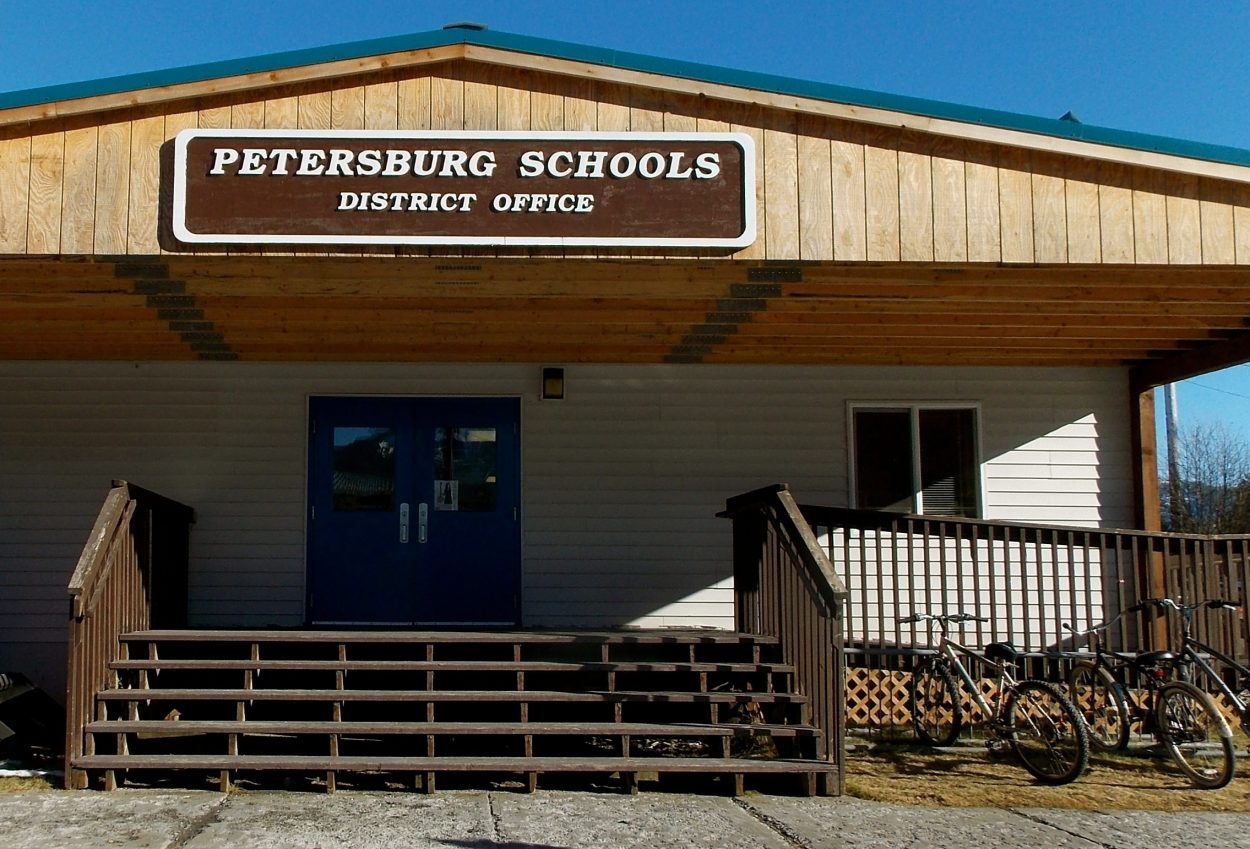 The state approved flat funding for education Tuesday and days later, the Petersburg School board passed its own budget for the next fiscal year. KFSK’s Angela Denning reports that Petersburg’s funding is not the best or worst case scenario.
The state approved flat funding for education Tuesday and days later, the Petersburg School board passed its own budget for the next fiscal year. KFSK’s Angela Denning reports that Petersburg’s funding is not the best or worst case scenario.
Governor Bill Walker signed the school funding bill for the next fiscal year on May 3. It funds education at the same amount per student as last year–$5,930.
Petersburg’s Superintendent Erica Kludt-Painter says the district expected the flat funding and prepared a budget accordingly.
“We based it on that for how things are going to look with staffing,” Kludt-Painter said. “It’s a bare bones budget, which is what we do, it’s conservative.”
Finance Director Karen Quitslund agrees. She told the school board that the budget is conservative but solid. It’s projected that the school district will have less students enrolled this fall than the current year. Although that number could change Quitslund says she’d rather add money in later than take it away.
“I do think that we’ll come in a little bit higher but I’m much more comfortable with going with a conservative budget that I know we can survive, the school district will survive, it will thrive, we will do operations as normal,” Quitslund said.
The budget includes $8,337,000 in revenue. Most of the spending—83 percent of it—goes to employee salaries and benefits. Quitslund says that’s a normal amount for the school district year to year. The rest of the spending is split among several things including four percent for supplies and materials for teachers, four percent for energy, and two percent for student travel.
Quitslund says next year there will be reductions in the supply budgets, staff transportation, and the maintenance budget.
“What we don’t have in the budget is excess or teaching supply budgets. They’re not cushy. I mean they’re bare bones, they’re bare bone budgets,” Quitslund said.
Flat funding for education will continue in the future, at least for the next few years. The Legislature passed a bill that secures flat funding for schools through 2020. The Petersburg borough’s local contribution will also likely be the same as the last several years at $1.8 million.
Mara Lutomski is the president of the school board. She says the district’s teachers make flat funding look good because of their dedication but it doesn’t allow for inflation.
“Petersburg makes it work and that’s because of the people we have in place,” Lutomski said. “But you can see this year that even though we’re still budgeting as conservatively as we have before…costs go up and that’s not something that we can keep within our control so flat funding will become a problem.”
Still, knowing what to expect does make it easier. As is often the case, the state’s education funding bill doesn’t get signed until the summer making it difficult for school districts to plan ahead. That caused many Alaska schools to hand out pink slips to teachers as a sort of lay-off notice depending on how funding played out.
Lutomski says getting state funding signed off in May is helpful.
“That means that we can start planning our budgets far earlier without having to rely on the shenanigans that happen in Juneau this time of year,” Lutomski said.
Quitslund told the school board that the budget balance could change depending on future situations. It would be affected by any long term leave, an exceptionally cold winter, more travel problems with the ferry system, or if anything major breaks down and needs immediate replacement.











